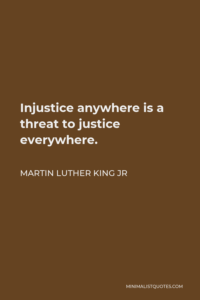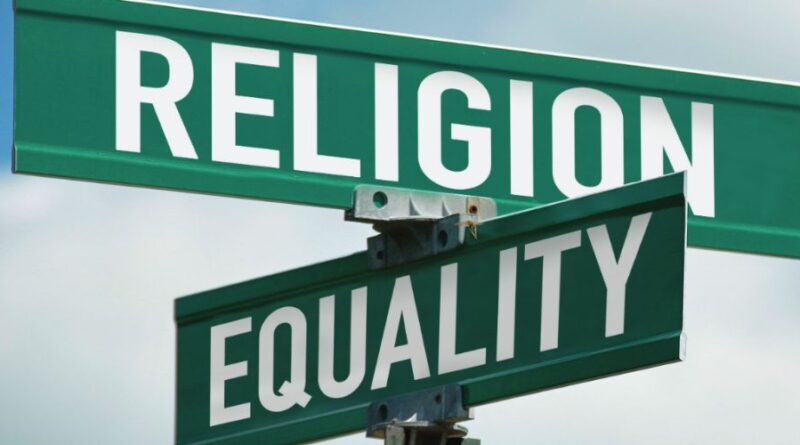Religion: Shaping Human Rights, For Better or Worse
The Impact Of Religion On Social Justice And Human Rights.
“To deny people their rights is to deny them of their humanity.“
Sadly the world have forgotten what social justice and human rights mean. Lets take a dive into the unspoken details of how religion affects the wrld around us.
What is social justice?
It is the way in which human rights are manifested in the everyday lives of people at every level of society. Social justice is treating or giving a fair hearing to the minors in the society. Social justice exists when people in a society are treated equally under the law and have equal rights and opportunities. It means that no one is exploited, resources and wealth are shared fairly, and care is taken of the least advantaged members of society.
What is a human right?
According to the Universal Declaration of Human Rights (UDHR), which sets out the basic human rights that everyone should be entitled to, regardless of their nationality, language, religion, gender, or status. It is the right of every individual to live, work, and enjoy other freedoms that every human is supposed to enjoy. Social justice and human rights are almost correlated.
Human rights and social justice have been significantly impacted by religion throughout history, as it is a potent force that moulds people’s attitudes, actions, and beliefs. Religious institutions and doctrines have influenced social justice movements in a profound way, both advancing and impeding the advancement of human rights around the world. Religion has a multifaceted role in the continuous struggle for equality, dignity, and human rights, whether it is to uplift the oppressed or to support repressive systems.
For instance, in order to combat racial segregation during the American Civil Rights Movement, religious leaders such as Dr. Martin Luther King Jr. invoked Christian doctrine. Religious institutions that have traditionally supported the rights of women, the poor, and marginalised groups include Islamic Relief and the Catholic Church.

Human rights and religious beliefs are somewhat compatible. For example, the conviction that all people are valuable has strengthened legal protections and humanitarian initiatives. However, injustice, including the persecution of LGBTQ+ people and gender inequity, has also been justified by the misuse of religion.
At its core, many religions advocate for the inherent dignity and worth of every individual. For instance, in Christianity, the concept of being created in the image of God emphasises the value of human life and the importance of treating others with respect and compassion.
However, the relationship between religion and social justice is not always straightforward. In some cases, religious beliefs have been used to justify discrimination and human rights violations. For example, interpretations of religious texts have been employed to support practices such as gender inequality, homophobia, or the persecution of religious minorities. These misinterpretations can lead to the marginalisation of certain groups and hinder progress toward social justice.
The impact of religion on human rights can also be seen in the international human rights frameworks. Many religious organisations and leaders have played a crucial role in advocating for human rights at both national and global levels. The Universal Declaration of Human Rights, adopted by the United Nations in 1948, reflects values that resonate with many religious traditions, including the rights to life, liberty, and security. Religious groups often mobilise their followers to promote these rights, emphasizing the moral imperative to protect the vulnerable and uphold justice.
Moreover, interfaith dialogue has emerged as a powerful tool for promoting social justice and human rights. By bringing together individuals from different religious backgrounds, interfaith initiatives foster understanding and collaboration on issues of common concern. These dialogues can lead to joint efforts to address social injustices, such as poverty, discrimination, and violence. For example, the Interfaith Alliance and similar organisations work to unite diverse faith communities in advocating for policies that promote equality and justice.
In addition to interfaith efforts, grassroots movements led by religious communities have made significant contributions to social justice. Faith-based organisations often provide essential services, such as education, healthcare, and advocacy for marginalised populations. These organisations leverage their religious values to mobilise resources and support for those in need. For instance, many churches and mosques engage in community service projects that address local issues, such as homelessness, hunger, and access to education.
However, challenges remain in the pursuit of social justice and human rights within religious contexts. Religious leaders and institutions must navigate complex dynamics, including differing interpretations of sacred texts and the influence of cultural norms. Additionally, the intersection of religion with politics can complicate efforts to promote human rights, as some governments may use religion to justify repressive policies or limit individual freedoms.
In conclusion, the impact of religion on social justice and human rights is multifaceted. While religious teachings have inspired countless individuals and movements to advocate for justice and equality, there are also challenges that arise from misinterpretations and the politicisation of faith. Ultimately, fostering a deeper understanding of the shared values within religious traditions can pave the way for collaborative efforts to address social injustices and promote human rights for all. By harnessing the positive aspects of religion, communities can work together to create a more just and equitable world.
READ: N50 Million Bail for Farotimi in Alleged Cybercrime Case
Content Credit| Igbakuma Rita Doom
https://minimalistquotes.com/martin-luther-king-jr-quote-16019/




